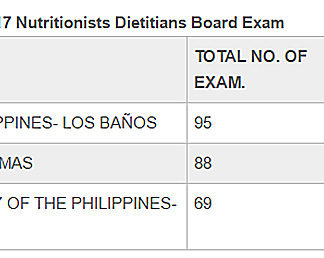 BECAUSE of objections and obstacles, it may take until kingdom come to pass the Freedom of Information (FOI) bill.
BECAUSE of objections and obstacles, it may take until kingdom come to pass the Freedom of Information (FOI) bill.
But with the clock ticking on the House of Representatives, lawmakers are still playing their cards on when to include the controversial Right of Reply provision on on the FOI. Amid the RH bill brouhaha, legislators are still cramming to revise and revise once more a bill that has undergone more facelifts than Jacko Wacko.
Needless to say, media men are going gaga over the passage of the FOI bill. In all its glorious honesty, the FOI aims to let people obtain papers of public officials that they may fancy looking at.
Of course, the FOI will be a deal great help for the journalists and for, God forbid, morbid party lists whose only goal on this land is to disrupt the flow of traffic with their slogans and burning mascots.
However, with the inclusion of the Right of Reply provision, media men are suddenly hit with a stunning liver blow that could potentially derail their momentum on a story.
Looking at both corners of the fight, it looks like that the former champion, the politicians, are on the ropes against a rejuvenated challenger, of course the journalists.
Everyone deserves a clean and fair fight. And with the media’s control on almost every member of the Philippine populace, any misread article on a politician’s papers can mean the Nine Circles of Hell for an unlucky politician.
It would be a very cruel thing leaving a lowly politician on the ropes while tens of thousands of rabid hungry mudslingers take turns in insulting his purest dignity.
Looking back at the Corona trial wherein the former Chief Justice was accused of owning nearly 50 properties when in fact the chubby man only had less than 10 of the said pieces of wealth.
Going straight to the point, Corona was judged by an ignorant public that only saw a man leaving the Senate hall in a wheelchair and immediately linking him to Satan.
Apparently, I am going against the tide of probably all journalists in the country if I am for the passage of the RoR provision.
Corona did not have the opportunity to say what the truth is since there was no RoR during that time, and he was made to suffer public scrutiny thanks to misread articles.
If the Congress wants to push through with the FOI bill despite the limited time, they might just already include the RoR and get it over with.
The RoR gives politicians the opportunity to, well, reply to accusations that journalists wrote. It is not a breach of editorial freedom; it is giving the other side the chance to swing a counter punch.
If people think that the RoR will give another crystal of power to the politicians, better think again. The RoR is not to put a straitjacket on the press; it is meant to level the playing field of both sides.
It will be too much to call the FOI without an RoR as journalistic arrogance. But fairness is one of the tenets of basic journalism, and the RoR should ensure fairness.















